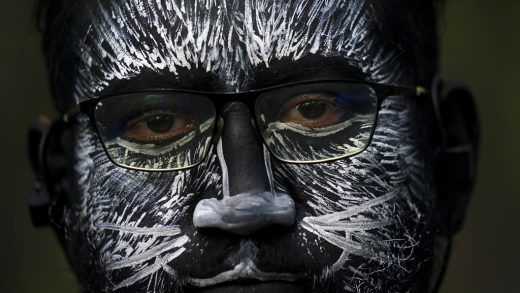
The cryptocurrency sector, currently valued at $3.31 trillion (approximately Rs. 2,79,67,613 crore), remains a niche market striving to establish its place in the global economy. Governments worldwide are still navigating the complexities of regulating crypto activities. Tornado Cash, a crypto mixer, has faced significant scrutiny in recent months due to its role in obscuring transaction trails, making fund recovery nearly impossible for victims of crypto scams and money laundering.
This week, a US federal court overturned the 2022 sanctions against Tornado Cash. The Fifth Circuit Court in New Orleans ruled that immutable smart contracts do not qualify as property, rendering existing laws inapplicable for imposing sanctions on the platform.
Understanding the Ruling
In 2022, Tornado Cash faced sanctions for allegedly facilitating the laundering of billions of dollars in cryptocurrency. The decision was later challenged by six users of the platform with support from Coinbase.
According to CyberScoop, the plaintiffs argued that Tornado Cash’s underlying smart contracts do not constitute property owned by the platform. Consequently, these contracts cannot be sanctioned under current laws, which allow sanctions on property but not on technology.
” We hold that Tornado Cash’s immutable smart contracts (the lines of privacy-enabling software code) are not the “property” of a foreign national or entity, meaning they cannot be blocked under IEEPA, and OFAC overstepped its congressionally defined authority,” the official court document said.
The New Orleans court’s latest ruling acknowledges that the sanctions against the crypto mixer lack legal basis. Responding to the decision, Coinbase’s Chief Legal Officer, Paul Grewal, described it as a victory for ‘privacy.’
“These smart contracts must now be removed from the sanctions list and US persons will once again be allowed to use this privacy-protecting protocol. No one wants criminals to use crypto protocols, but blocking open source technology entirely because a small portion of users are bad actors is not what Congress authorised,” Grewal posted on X.
Privacy wins. Today the Fifth Circuit held that @USTreasury‘s sanctions against Tornado Cash smart contracts are unlawful. This is a historic win for crypto and all who cares about defending liberty. @coinbase is proud to have helped lead this important challenge. 1/6
— paulgrewal.eth (@iampaulgrewal) November 26, 2024
A Closer Look at Tornado Cash’s Legal Struggles
Tornado Cash, a crypto mixer, allows users to conduct private financial transactions by swapping their cryptocurrency tokens for others of equal value within a shared pool. This process ensures anonymity but is often exploited by hackers and money launderers to obscure transaction histories and evade detection by law enforcement agencies.
Back in 2022 the Treasury Department’s Office of Foreign Assets Control (OFAC) imposed sanctions against Tornado Cash citing its alleged role in laundering over $7 billion (roughly Rs. 62,861 crore), a Reuters report said. As per the OFAC, North Korea’s notorious hackers from the Lazarus Group also used Tornado Cash to launder over $455 million (roughly Rs. 3,844 crore) from crypto thefts and hacks.
The platform was blacklisted in the US, leading to the arrest of its co-creator, Alexey Pertsev, in the Netherlands. Prior to his trial in March, Pertsev was released under surveillance after spending eight months in custody. In May, he was sentenced to 64 months in prison for money laundering.
I am sad to announce that, despite our best efforts, the court decided to prolong my pre-trial detention. This decision significantly complicates my ability to prepare for the appeal, but I remain determined to continue fighting for justice.
Grateful for your ongoing support.:pray::skin-tone-3:
— Alexey Pertsev (@alex_pertsev) November 21, 2024
Members from the Web3 community have criticised Pertsev’s arrest stating that the authorities were trying to curb financial privacy and independence by repressing services like Tornado Cash. For now, it remains unclear if the latest ruling in favour of Tornado Cash will have an impact on Pertsev’s situation.



